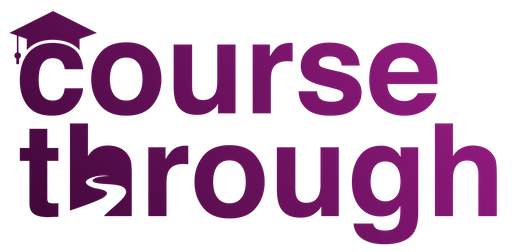Starting or growing a business is one of the most thrilling endeavours you can embark upon. It’s a journey filled with possibilities, challenges, and the potential for incredible success. But to navigate this path successfully, you often need more than just ambition—you need guidance, expertise, and a strategic approach. That’s where a business coach comes in. Here at Course Through we are here to share how a business coach can help you turn your entrepreneurial dreams into reality.
The Power of Business Coaching
Business coaching is not just about giving advice; it’s about empowering you to unlock your full potential. A great business coach partners with you, providing the tools, insights, and support you need to achieve your goals. Whether you’re in the early stages of starting a business or looking to scale an existing one, coaching can make a significant difference.
A Template Session Plan for Business Coaching
To give you a clearer picture of how business coaching works, let’s walk through a typical session plan. Each session is designed to build on the previous one, ensuring continuous progress and development.
Session 1: Initial Consultation and Goal Setting
Objective: Establish a clear vision and set achievable goals.
- Introduction and Rapport Building: The first session is all about getting to know each other. We’ll discuss your background, experiences, and what motivated you to seek coaching.
- Vision Clarification: We’ll dive into your vision for your business. What do you want to achieve? What are your long-term and short-term goals?
- Goal Setting: Based on your vision, we’ll set SMART goals—Specific, Measurable, Achievable, Relevant, and Time-bound. These goals will serve as the roadmap for our coaching journey.
- Initial Action Plan: We’ll outline the first steps you need to take to start moving towards your goals. This plan will include immediate actions and longer-term strategies.
Session 2: Market Research and Business Planning
Objective: Conduct thorough market research and develop a comprehensive business plan.
- Market Analysis: We’ll analyze your target market, identifying key trends, opportunities, and potential challenges. Understanding your market is crucial for crafting a successful business strategy.
- Competitor Analysis: We’ll examine your competitors, identifying their strengths and weaknesses. This analysis will help you position your business effectively.
- Business Model Development: Based on our research, we’ll refine your business model. We’ll ensure it aligns with your goals and market conditions.
- Business Plan Creation: Together, we’ll develop a detailed business plan that includes your vision, goals, market analysis, business model, financial projections, and marketing strategies.
Session 3: Building Your Brand and Marketing Strategy
Objective: Develop a strong brand identity and effective marketing strategy.
- Brand Identity: We’ll work on defining your brand—what it stands for, its values, and how it differentiates from competitors. Your brand is the essence of your business; it needs to be powerful and memorable.
- Target Audience: We’ll identify your ideal customers and understand their needs, preferences, and behaviors. Knowing your audience is key to effective marketing.
- Marketing Channels: We’ll explore various marketing channels (digital, social media, content marketing, etc.) and determine which ones are most effective for reaching your target audience.
- Marketing Plan: We’ll create a comprehensive marketing plan that outlines your strategies, tactics, and metrics for success. This plan will be your guide to attracting and retaining customers.
Session 4: Financial Planning and Management
Objective: Ensure sound financial management and sustainability.
- Financial Projections: We’ll develop financial projections, including revenue, expenses, and profit margins. These projections will help you plan for growth and manage resources effectively.
- Budgeting: We’ll create a detailed budget that aligns with your business plan. This budget will serve as a financial roadmap, helping you allocate resources wisely.
- Cash Flow Management: We’ll discuss strategies for managing cash flow, ensuring you have the liquidity needed to sustain and grow your business.
- Funding Strategies: If you need external funding, we’ll explore various options (loans, investors, grants) and develop a strategy for securing the necessary capital.
Session 5: Operational Efficiency and Process Improvement
Objective: Optimize operations and improve efficiency.
- Operational Analysis: We’ll review your current operations, identifying areas where improvements can be made. Efficient operations are crucial for scalability and profitability.
- Process Optimization: We’ll streamline processes to reduce waste, improve productivity, and enhance quality. This might involve adopting new technologies or refining existing workflows.
- Resource Management: We’ll discuss how to manage your resources (time, people, materials) effectively. Proper resource management is essential for maintaining a competitive edge.
- Performance Metrics: We’ll establish key performance indicators (KPIs) to measure operational efficiency. These metrics will help you track progress and make informed decisions.
Session 6: Leadership Development and Team Building
Objective: Enhance your leadership skills and build a strong team.
- Leadership Assessment: We’ll assess your current leadership style and identify areas for improvement. Great leaders inspire and motivate their teams to achieve extraordinary results.
- Skill Development: We’ll work on developing essential leadership skills such as communication, decision-making, and conflict resolution.
- Team Building: We’ll discuss strategies for building a cohesive and high-performing team. This includes hiring the right people, fostering a positive work culture, and encouraging collaboration.
- Delegation and Empowerment: We’ll explore how to delegate effectively and empower your team members. Delegation frees up your time for strategic activities, while empowerment boosts team morale and productivity.
Session 7: Sales Strategies and Customer Relationships
Objective: Develop effective sales strategies and build strong customer relationships.
- Sales Process Optimization: We’ll review and optimize your sales process, ensuring it’s efficient and effective. A streamlined sales process can significantly boost your revenue.
- Customer Relationship Management: We’ll discuss strategies for building and maintaining strong customer relationships. Loyal customers are more likely to become repeat buyers and advocates for your brand.
- Sales Techniques: We’ll explore various sales techniques and tactics that align with your business model and target audience. Effective sales strategies are crucial for business growth.
- Feedback and Improvement: We’ll establish a system for collecting and analyzing customer feedback. Continuous improvement based on customer insights is key to long-term success.
Session 8: Scaling and Growth Strategies
Objective: Develop strategies for scaling your business and sustaining growth.
- Growth Opportunities: We’ll identify potential growth opportunities, whether it’s expanding your product line, entering new markets, or exploring strategic partnerships.
- Scaling Plan: We’ll develop a detailed plan for scaling your business. This plan will include strategies for managing increased demand, maintaining quality, and ensuring operational efficiency.
- Risk Management: We’ll discuss how to manage the risks associated with scaling. This might involve contingency planning, diversifying revenue streams, and strengthening your financial position.
- Sustaining Growth: We’ll explore strategies for sustaining growth over the long term. This includes continuous innovation, adapting to market changes, and maintaining a customer-centric approach.
Session 9: Innovation and Adaptability
Objective: Foster a culture of innovation and adaptability.
- Innovation Strategies: We’ll discuss how to foster innovation within your business. This might involve encouraging creativity, investing in research and development, and staying ahead of industry trends.
- Adaptability: We’ll explore how to build a resilient and adaptable business. The ability to pivot and adapt to changing market conditions is crucial for long-term success.
- Continuous Learning: We’ll establish a culture of continuous learning and improvement. Staying curious and open to new ideas is key to maintaining a competitive edge.
- Future Planning: We’ll discuss long-term planning and visioning. Where do you see your business in five or ten years? What steps do you need to take to get there?
Session 10: Review and Reflection
Objective: Reflect on progress, celebrate achievements, and plan for the future.
- Progress Review: We’ll review the progress you’ve made towards your goals. Celebrating achievements is important for maintaining motivation and momentum.
- Reflection: We’ll reflect on the coaching journey, discussing what worked well and what could be improved. This reflection helps you gain valuable insights and learnings.
- Future Goals: We’ll set new goals for the future, building on the foundation we’ve established. Continuous growth and improvement are the hallmarks of a successful business.
- Ongoing Support: We’ll discuss options for ongoing support and coaching. Whether it’s regular check-ins or ad-hoc sessions, continued guidance can help you stay on track.
The Impact of A Business Coach
Business coaching is a transformative process that can significantly impact your business’s success. Here are some of the key benefits you can expect:
- Clarity and Focus: Coaching helps you gain clarity on your vision and goals, ensuring you stay focused and aligned.
- Strategic Thinking: You’ll develop strategic thinking skills that enable you to make informed decisions and navigate challenges effectively.
- Increased Confidence: Coaching boosts your confidence, empowering you to take bold steps and overcome obstacles.
- Enhanced Skills: You’ll develop essential skills in leadership, marketing, financial management, and more.
- Accountability: Regular coaching sessions provide accountability, helping you stay committed to your goals.
- Personal Growth: Beyond business success, coaching fosters personal growth and development, enhancing your overall well-being.
Embracing the Journey
Starting and growing a business is a journey filled with highs and lows, successes and challenges. Your coach is there to guide you every step of the way, providing the expertise, support, and encouragement you need to achieve your dreams.
Remember, the road to success is rarely straight, but with the right guidance and determination, you can navigate any twists and turns along the way.
If you are ready to start your business coaching journey then we highly recommend finding a coach here – Life and business coaching in Dorset – Life Coach Directory (lifecoach-directory.org.uk)
And if you feel a Life Coach would be a better fit for you then please feel free to read one of our most popular posts here How a Life Coach Can Help You Improve Your Life – Course Through




Leave a Reply